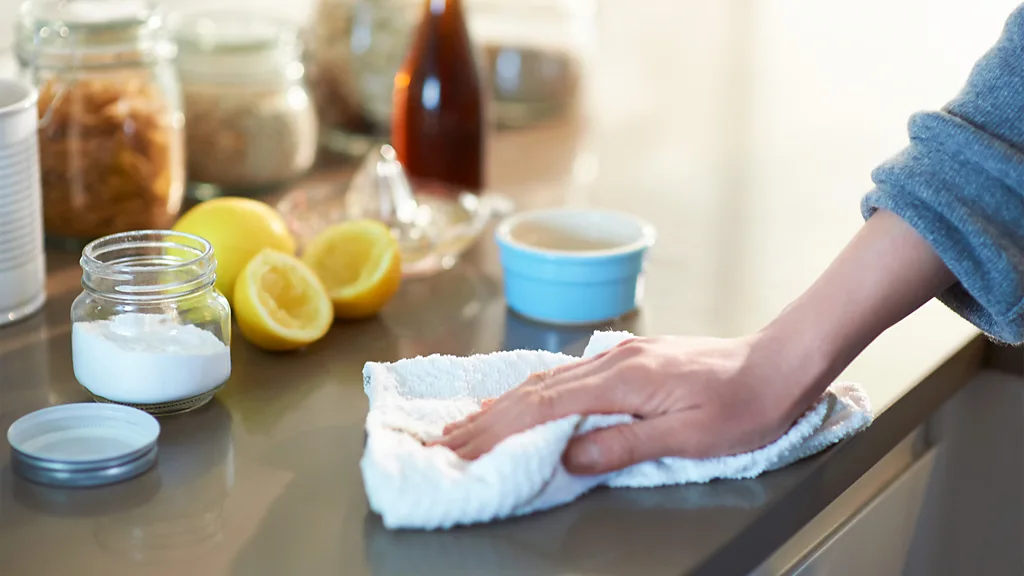
The Environmental Impact of Cleaning with Baking Soda
Cleaning with baking soda, also known as bicarbonate of soda, has been a popular household cleaning hack for years. Many people consider it an effective and environmentally friendly alternative to commercial cleaning products. But does it really work, and is it truly a greener choice?
The idea of using baking soda for cleaning is not new. The powder is versatile and can help with various household tasks, from removing stains to eliminating odors. It is also a mild abrasive, which helps lift dirt when scrubbed onto a surface. Nathan Kilah, a senior lecturer in chemistry at the University of Tasmania, explains that baking soda works effectively due to its high pH level, which makes it good for tackling acidic substances.
How Effective is Baking Soda for Cleaning?
Baking soda can be quite effective for some cleaning tasks. It works well for neutralizing acidic odors or as a gentle abrasive to scrub surfaces clean. However, there are limitations. According to Dario Bressanini, a chemist from the University of Insubria, many baking soda cleaning hacks found online are not as effective as they seem. Mixing baking soda with vinegar, for example, creates a fizzy reaction, but the two substances neutralize each other, making the combination ineffective as a cleaner.
Baking soda deodorizes areas like shoes or refrigerators where acidic odors are present. Additionally, when used on greasy pans, the reaction between baking soda and fat can form a soap-like substance, which helps in cleaning. However, baking soda lacks the surfactants found in soaps and detergents that are necessary to break down and remove greasy residues effectively.
Benefits and Limitations of Using Baking Soda
For general cleaning, especially where grease or oil is involved, baking soda may not perform as well as traditional cleaners that contain surfactants. These chemicals help reduce the surface tension between oil and water, making it easier to wash away dirt and grime. Baking soda’s effectiveness in these scenarios is limited, and it usually requires more scrubbing compared to using a commercial detergent.
Comparing Baking Soda to Commercial Cleaners
While many see baking soda as an environmentally friendly alternative, it is not without its environmental costs. It does not occur naturally and requires energy-intensive processes to produce. Most baking soda is made using the Solvay process, which involves chemicals like ammonia and calcium carbonate. This production process has an environmental impact, although the end product is relatively safe for home use.
Compared to commercial cleaning products, baking soda has a lower impact in terms of packaging and emissions. Most commercial cleaners come in plastic containers and contain harsh chemicals that can release volatile organic compounds (VOCs) into the air, contributing to indoor pollution. Baking soda, on the other hand, is often sold in simple cardboard boxes, making it a more sustainable option from a packaging perspective.
However, baking soda’s limitations as a cleaner mean that it may not always be the best choice for every cleaning task. Commercial cleaners are often designed to be more efficient and tackle a wider variety of cleaning problems. They contain disinfectants, surfactants, and other ingredients that baking soda lacks, which makes them more versatile for heavy-duty cleaning.
Tips for Using Baking Soda Effectively
To use baking soda effectively, it is essential to understand its strengths and limitations. It works best for neutralizing odors and as a gentle abrasive. For stubborn stains or greasy surfaces, it may require extra effort. Combining baking soda with other natural products like vinegar can sometimes help, but be cautious as their reactions might neutralize their effectiveness. Baking soda is great for specific tasks, but for more challenging cleaning needs, it is wise to consider other products.
Conclusion
The key to environmentally friendly cleaning is not just about choosing the right products but also using them wisely. Limiting the amount of chemicals released into the environment and avoiding unnecessary waste are important steps. Baking soda can be part of a sustainable cleaning routine, but it may need to be supplemented with other products, especially for tasks involving grease, grime, or disinfection.
Ultimately, cleaning with baking soda can be a greener option compared to using harsh commercial chemicals, but its role should be considered in context. It is effective for some cleaning jobs, but it does not replace the need for detergents and disinfectants in every situation. To create a truly environmentally friendly cleaning routine, consider combining baking soda with other natural products or opting for eco-friendly commercial cleaners when needed.
External Link: Read more at BBC
Internal Link: Explore sustainable cleaning methods





